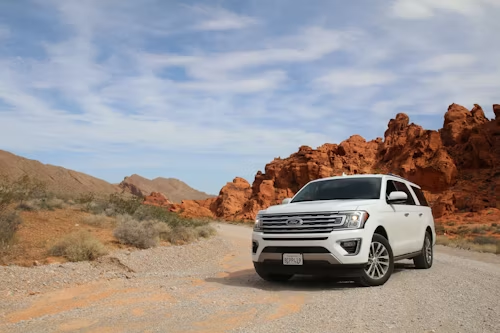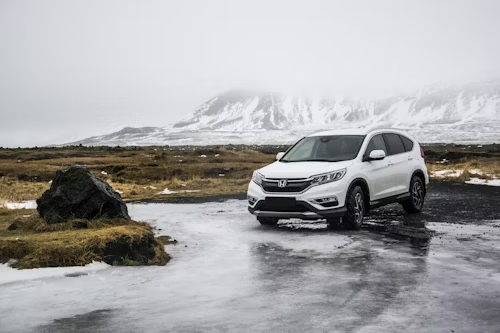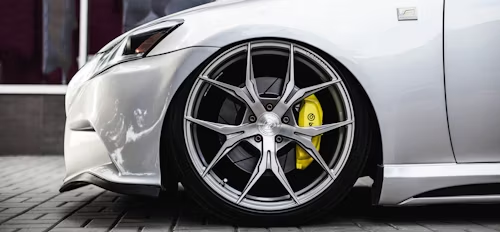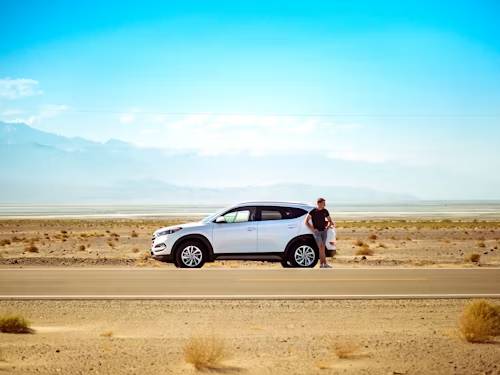Navigating the car buying process can be daunting, especially with dealers employing various tactics to maximize their profits. To empower you with knowledge and help you secure the best deal, we’ve compiled 34 insider car-buying tips that dealers usually keep under wraps. From decoding their sales strategies to understanding hidden fees and negotiation tactics, this comprehensive guide will equip you with the information you need to confidently walk into any dealership.
1. The Best Time to Buy

The end of the month is the prime time to purchase a new car. Dealerships are often trying to meet monthly quotas and are more likely to offer discounts or incentives to close deals.
2. Beware of Bait-and-Switch

Those heavily advertised cars with unbelievably low prices? They’re usually stripped-down models with minimal features. Dealers use them to lure you in, hoping you’ll upgrade to a more expensive vehicle.
3. The VIN-Etch Fee Is Optional

Dealerships often charge a $250 VIN-etch fee, claiming it’s for theft prevention. However, this is an optional add-on and a pure profit generator for them. You can safely decline this fee.
4. We’re Onto the Mulch Trick

Some customers try to take advantage of test drives by using the vehicle for personal errands, like hauling mulch. Dealers are aware of this tactic and won’t be fooled.
5. Distraction is Key

Loud music, flashy displays, and constant back-and-forth with the manager are all designed to distract you during negotiations. Stay focused on the deal at hand and don’t get sidetracked.
6. Safety First on Test Drives

Car theft during test drives is a real risk. Be cautious and avoid isolated areas. If possible, take someone with you on the test drive for added security.
7. Profit Margins Are Slimmer Than You Think

Contrary to popular belief, dealerships typically operate on a 2-4% profit margin. This means there’s not much wiggle room for haggling on the car’s price.
8. If It Seems Too Good to Be True…

If a dealer offers a price significantly lower than others, there’s likely a catch. It could be a bait-and-switch tactic, hidden fees, or an older model with high mileage.
Read More: Firefighters Warn Public Of Dangers Of Leaving Water Bottles In Cars
9. Know Your Credit Score

Your credit score plays a crucial role in car financing. If your score is below 600, expect higher interest rates and a larger down payment. In extreme cases, dealers may even install tracking devices to ensure payments.
10. Don’t Be a Victim

Enter the dealership prepared and educated. Research the car’s pricing, secure financing beforehand, and know your limits. This will empower you during negotiations.
11. Everybody Thinks Their Trade-In is Worth More

Don’t overestimate the value of your trade-in. Dealers are experts at assessing car conditions and will factor in mileage, wear and tear, and market demand.
12. How to Get a Great Price With Minimal Haggling

Reach out to the Internet or fleet manager directly for the best deals. They often have more flexibility in pricing compared to regular salespeople.
13. Beware of the ‘Minimum Trade-In Value’ Ads

Dealerships that advertise a minimum trade-in value often inflate the car’s selling price to compensate for the guaranteed trade-in amount.
14. Be Prepared for the Upsell

Once you’ve agreed on a price, the dealer will try to upsell you on additional products like extended warranties, rustproofing, and paint protection. These add-ons are often overpriced and can be purchased elsewhere for less.
15. Don’t Be Fooled by Monthly Payments

Focusing on monthly payments can obscure the total cost of the car. Always consider the overall price, including interest rates, fees, and the loan duration.
16. Beware of Closing Time Deals

Dealers may seem eager to close a deal at the end of the day, but this doesn’t always translate to a better price for you. Take your time and don’t feel pressured to rush into a decision.
17. Get Everything in Writing

Verbal promises from dealers may not hold up. Ensure all agreements, including discounts, trade-in values, and additional features, are clearly documented in writing.
18. Learn the Car’s Features

Before leaving the dealership, ask the salesperson to demonstrate all the car’s features, including how to use the windshield wipers, headlights, and infotainment system.
19. Bank Loans Don’t Require Specific Add-Ons

If the finance officer insists you need to purchase specific warranties or add-ons to get a loan, verify this directly with the bank. It’s often a tactic to increase the dealer’s profits.
20. We Are the Pricing Experts

While Kelley Blue Book and other sources provide car value estimates, dealerships have in-depth knowledge of local market conditions and can accurately assess a car’s worth.
21. Buyers Can Be Liars Too

Dealers are aware that some buyers may not be entirely truthful about their intentions, credit history, or financial situation.
22. “Are You Here to Buy?”

If a salesperson asks this question early in the interaction, it’s a red flag. It may indicate they are more focused on a quick sale than finding the right car for you.
23. Understand the Trade-In Process

Dealerships need to recondition, advertise, and potentially offer warranties on trade-in vehicles. This affects the amount they can offer for your trade-in.
24. Pushy Sales Tactics

Some salespeople may resort to pushy tactics to close a deal. Be assertive and don’t be afraid to walk away if you feel uncomfortable.
25. The “I Need to Check with My Spouse” Line

Dealers may perceive this as a stalling tactic or a sign of indecision. If you need to consult with someone else, be upfront about it early in the process.
26. Do the Math

Don’t be fooled by seemingly low monthly payments. Calculate the total cost of the car, including interest and fees, to get a realistic picture of what you’ll be paying.
27. Shop Around for Add-Ons

Dealerships often mark up the prices of add-ons like window tinting, rustproofing, and pinstriping. Compare prices with other providers before committing.
28. Attractive People Sell More Cars

Dealerships are aware that attractive salespeople may influence customers’ decisions. Focus on the car’s features and your needs, not the salesperson’s appearance.
29. The “Quarterback” Friend

Bringing a friend or family member for support is fine, but don’t assume they have expert knowledge. Do your research and be prepared to make your own decisions.
30. Weekdays Are Better for Car Shopping

Dealerships are less crowded on weekdays, allowing you to get more personalized attention from the salesperson and take your time with the decision.
31. Not All Car Dealers Are Sleazy

While there are dishonest dealers, many are honest professionals who strive to provide good service. Don’t let negative stereotypes deter you from finding a reputable dealer.
32. Don’t Be Fooled by the ‘Finance Manager’

The finance manager’s role is to maximize the dealership’s profits, not necessarily to get you the best deal. Be wary of their upselling tactics and carefully review all financial documents.
33. The Older Woman Stereotype

Dealers may target older women who come in alone, assuming they are less knowledgeable about the car buying process. Be prepared and assertive to avoid being taken advantage of.
34. The End of Model Year Sales

Dealers are eager to clear out inventory at the end of the model year, usually in September or October. This can be a great time to find discounts on new cars.
H/t RD
Read More: New Zealand is giving bereavement leave from work to women who have miscarriages
This content has, in part, been generated with the aid of an artificial intelligence language model. While we strive for accuracy and quality, please note that the information provided may not be entirely error-free or up-to-date. We recommend independently verifying the content and consulting with professionals for specific advice or information. We do not assume any responsibility or liability for the use or interpretation of this content.

